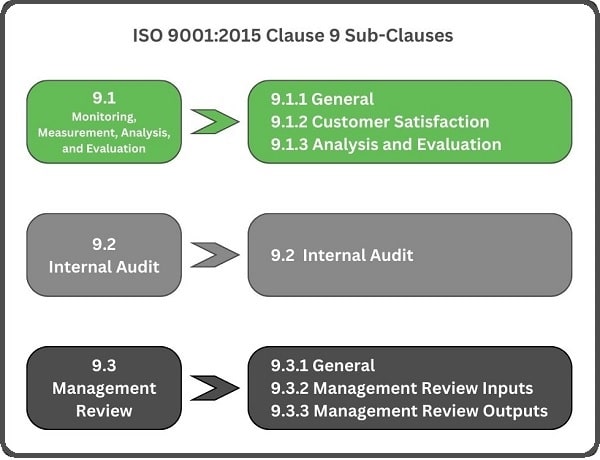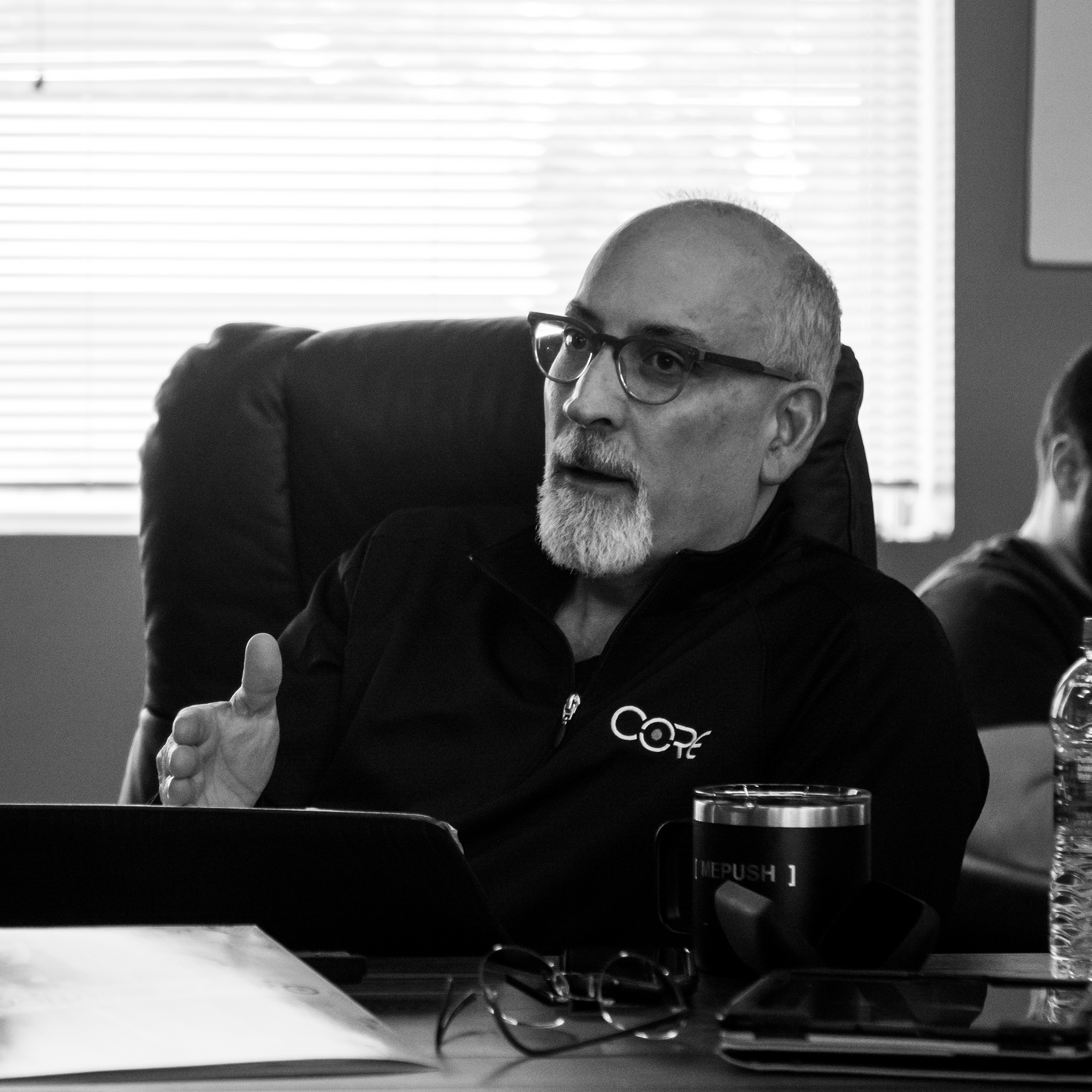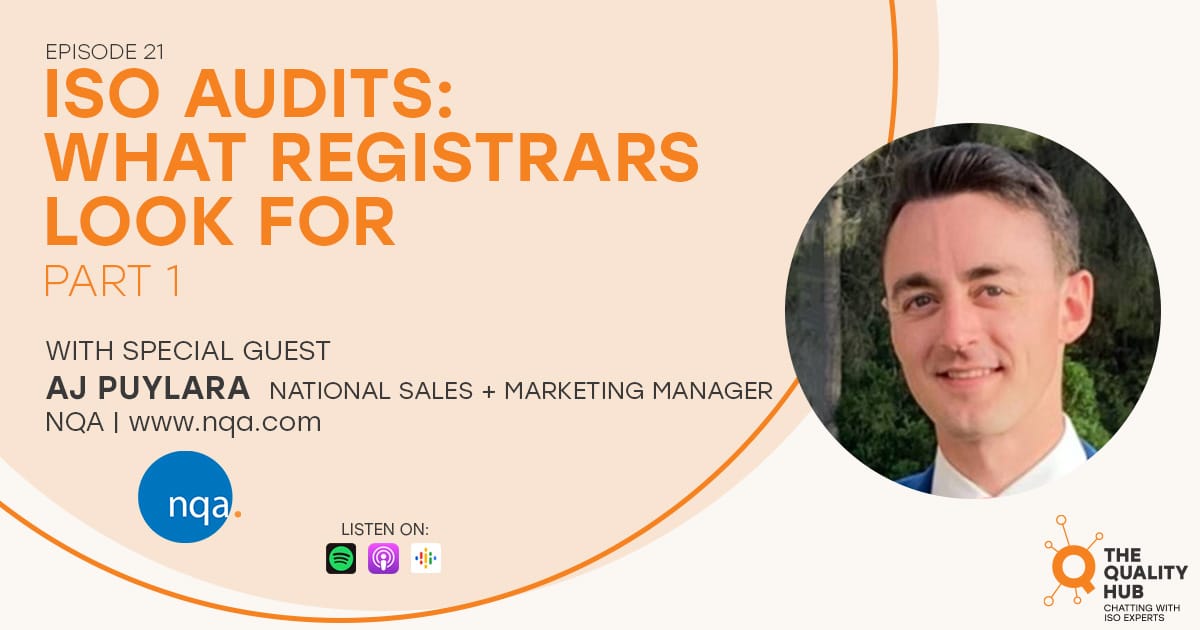ISO 9001:2015 Clause 9.2
What is ISO 9001:2015 Clause 9.2?
Clause 9.2 of ISO 9001:2015 is related to the “Internal Audit” process within the quality management system (QMS). In the ISO 9001:2015 standard, Clause 9 focuses on “performance evaluation” and specifically addresses internal audits as a means of assessing the effectiveness of the QMS.
Key points outlined in Clause 9.2 include:
Audit Program:
Organizations are required to establish, implement, maintain, and continually improve an audit program that includes systematic internal audits to determine whether the QMS conforms to the planned arrangements, the requirements of the ISO 9001 standard, and the requirements of the organization itself.
Auditor Competence:
The organization must ensure that internal audits are conducted by personnel competent to perform the audit tasks. This includes having knowledge and skills in auditing techniques and the relevant QMS processes.
Independence and Impartiality:
Internal auditors should be independent of the activities they audit, and they must remain impartial. This means avoiding conflicts of interest that could compromise the objectivity of the audit process.
Get a Free Quote
Audit Criteria, Scope, and Frequency:
The criteria for the audit, as well as the scope and frequency of internal audits, should be defined. The audits should cover all areas of the QMS, and the frequency should be based on the importance of the processes and their associated risks.
Audit Planning:
Organizations need to plan and schedule internal audits based on the results of previous audits and changes in the organization, including process performance and the effectiveness of the QMS.
Audit Records:
Records of internal audits and their results should be maintained. These records should demonstrate evidence of the implementation and effectiveness of the QMS.
Audit Findings:
The organization is required to determine and implement corrections and corrective actions for nonconformities identified during internal audits. This is part of the continuous improvement process.
In summary, Clause 9.2 of ISO 9001:2015 emphasizes the importance of internal audits as a tool for evaluating the effectiveness of the QMS and ensuring its ongoing improvement. The systematic and well-planned internal audit process helps organizations identify areas for improvement, address nonconformities, and enhance the overall performance of their quality management system.
How do you comply with Clause 9.2?
Compliance with Clause 9.2 of ISO 9001:2015 involves establishing and maintaining an effective internal audit process within your organization’s quality management system (QMS). Here are steps you can take to comply with Clause 9.2:
Establish an Audit Program:
- Develop an annual or multi-year audit schedule that covers all relevant processes within the organization.
- Consider the importance of each process, associated risks, and any changes in the organization when planning the audit schedule.
Select Competent Auditors:
- Ensure that internal auditors possess the necessary skills and knowledge in auditing techniques and the relevant QMS processes.
- Provide training and ongoing professional development to enhance auditor competence.
Ensure Independence and Impartiality:
- Establish measures to ensure the independence and impartiality of internal auditors, such as avoiding conflicts of interest.
- Define the reporting lines for internal auditors to maintain objectivity.
Define Audit Criteria, Scope, and Frequency:
- Clearly define the criteria for the audits, including the standards, procedures, and requirements to be assessed.
- Determine the scope of each audit, ensuring that all relevant processes are covered.
- Establish the frequency of audits based on the importance and performance of each process.
Plan and Schedule Audits:
- Develop detailed audit plans for each scheduled audit, specifying the objectives, scope, criteria, and resources required.
- Communicate the audit schedule to relevant personnel in advance.
Conduct Audits:
- Execute the internal audits according to the established plans and schedules.
- Use appropriate audit techniques to gather evidence and assess conformity with the QMS requirements.
Record and Document Audit Findings:
- Maintain comprehensive records of audit activities, including findings, observations, and evidence collected.
- Clearly document any nonconformities identified during the audit process.
Determine Corrective Actions:
- Analyze audit findings to identify the root causes of nonconformities.
- Establish and implement corrective actions to address identified issues.
Monitor and Review Effectiveness:
- Monitor the implementation of corrective actions to verify their effectiveness.
- Review the overall effectiveness of the internal audit process during management reviews.
Maintain Audit Records:
- Keep detailed and accurate records of all internal audits and their outcomes.
- Use these records as evidence of the organization’s commitment to continuous improvement and compliance with ISO 9001:2015.
By following these steps, your organization can demonstrate compliance with Clause 9.2 of ISO 9001:2015 and effectively utilize internal audits as a tool for evaluating and improving the QMS. Regularly reviewing and updating your internal audit process will contribute to the ongoing success of your quality management system.

What is the History of Clause 9.2?
ISO 9001 is a standard that has undergone several revisions over the years, with each version introducing changes and improvements. Clause 9.2, specifically addressing internal audits, has evolved in response to the need for organizations to have effective mechanisms to assess and improve their quality management systems.
Here is a brief historical overview of Clause 9.2 in ISO 9001:
ISO 9001:1987:
The first version of ISO 9001 was published in 1987 and did not have a specific clause dedicated to internal audits.
ISO 9001:1994:
The 1994 revision introduced the concept of internal audits under Clause 4.17. This clause emphasized the need for internal audits to verify that the quality system was functioning according to the documented procedures.
ISO 9001:2000:
The 2000 revision marked a significant change by reorganizing the standard into process-based requirements. The role of internal audits was recognized in Clause 8.2.2, focusing on monitoring and measurement of processes.
ISO 9001:2008:
The 2008 revision maintained the structure of the 2000 version. The requirement for internal audits was found in Clause 8.2.2, with a specific emphasis on monitoring and measurement of processes.
ISO 9001:2015:
The most recent major revision of ISO 9001 was published in 2015. Clause 9.2 in ISO 9001:2015 was expanded to cover the broader concept of performance evaluation, encompassing not only internal audits but also management reviews, monitoring, measurement, analysis, and evaluation of processes.
ISO 9001:2015 emphasized a risk-based approach to quality management, requiring organizations to consider risks and opportunities throughout the standard, including in the planning and execution of internal audits.
Throughout these revisions, the evolution of the internal audit clause reflects a growing understanding of the importance of evaluating the performance of a quality management system.
The changes also align with broader shifts in the approach to quality management, such as the emphasis on process-based thinking and the incorporation of risk-based principles in ISO 9001:2015. The continual updates aim to enhance the effectiveness and relevance of the standard in the context of evolving business practices and global quality expectations.
Helpful Resources: ISO Audits – What Registrars Look For Part 1
In this episode of “The Quality Hub: Chatting with ISO Experts,” host Xavier Francis interviews AJ Puylara, National Sales and Marketing Manager at NQA, a global certification body. AJ shares his experience in the ISO industry and discusses the ISO certification process. He highlights the steps involved, including engaging with a third-party ISO consultant or registrar and conducting a gap assessment. Listen Now
Consulting Support for ISO 9001
Every year, we help hundreds of small businesses achieve ISO 9001 certification. Support for ISO 9001 is available through any of our Consulting Programs As an American business with a story like yours, we know that time is valuable. Our expert consultants are here to take on the difficult, technical aspects of certification so you can focus on your business. They’ll work with you every step of the way until you’re successfully certified. Interested? Get a Free Quote.
In many industries, ISO 9001 has become a supply-chain requirement. When landing a big contract, ISO 9001 certification could make all the difference.

About Core Business Solutions
"Core Business Solutions was started by my brother, Mike Dawson, and myself, true entrepreneurs at heart looking for a better way to make a living and help small businesses improve the quality of the products and services they provide.
The bottom line: we are real people that have developed a team to come along side you to help you grow and succeed."
-- Scott Dawson, President
Related Standards
We provide consulting support for various other standards, as well as support for companies seeking multiple certifications through an Integrated Management System.
AS9100
Aerospace Manufacturers
AS9120
Aerospace Distributors
ISO 14001
Environmental Management Systems
ISO 27001
Information Security Management Systems
ISO 20000-1
Service Management Systems
ISO 45001
OH&S Management Systems
ISO 13485
Medical Device Manufacturers
AS9100
AS9120
ISO 14001
ISO
20000-1
ISO 27001
ISO 45001
ISO 13485
Equip Your Business to Meet ISO 9001 With CORE
At Core Business Solutions, we’re here to equip your company for success in meeting ISO 9001 requirements. We’ve helped hundreds of small businesses grow and deliver the best solutions to their clients. We provide ISO training services, consulting help, and compliance software and to help you get certified and stay certified. We focus on optimizing your processes and helping you implement an ISO-compliant QMS. When you partner with us, you’ll get the tools and help you need for success. For more information on the ISO 9001:2015 standard, please visit our articles page. You can also call our consulting office at 866-354-0300 or contact us online.
Do you want to update your existing ISO 9001 QMS System or refresh it?
We provide consulting services to assist you in your ISO 9001 Quality Management System refresh. We listen, conduct a gap analysis, update your Quality Policy and any necessary documentation or procedures, find areas of waste or improvement, simplify and automate. And we do it fast. Core offers firm, fixed pricing. Download our information sheet today to learn more or call us at 866-354-0300 Extension 2.

